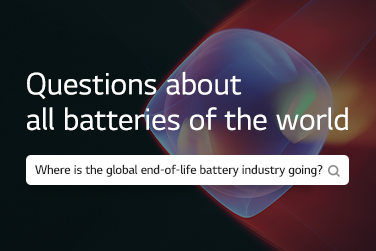As a global company with battery manufacturing plants worldwide, LG Energy Solution is always interested in learning more about our expatriates and their lives abroad!
We asked some of our current expats in Michigan, USA, about their work lives.
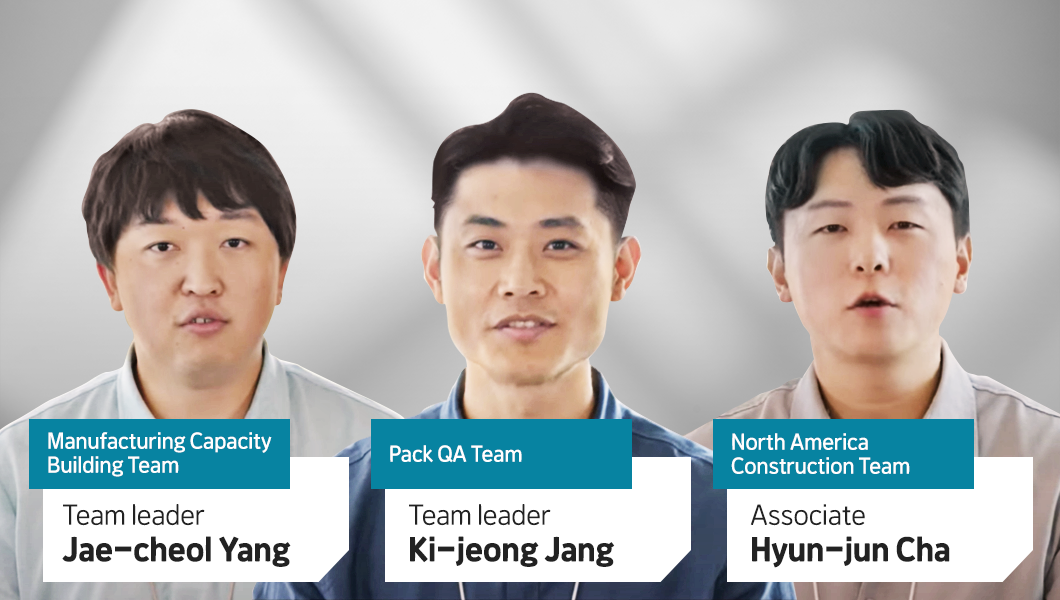
Q. Could you tell us about your major and role?
(Team leader Jae-cheol Yang, Manufacturing Capacity Building Team)
I studied electronic engineering and am currently preparing for the “smart factory,” which has recently attracted attention. I strive for the best layout, logistics, and facilities based on my major.
(Associate Hyun-jun Cha, North America Construction Team)
I studied mechanical engineering and construction plant engineering and currently work as a mechanical engineer for the North America Construction team. We are constructing MI 2, the exclusive factory for LG Energy Solution, behind the MI corporate building. I design mechanical air conditioning systems and the utilities required for fire protection and manufacturing. In addition, I work on orders to manage local construction companies, architects, and construction management companies in the United States.
(Team leader Ki-jeong Jang, Pack QA Team)
I studied electrical and electronic engineering and am currently working on quality preservation management for finished battery packs.
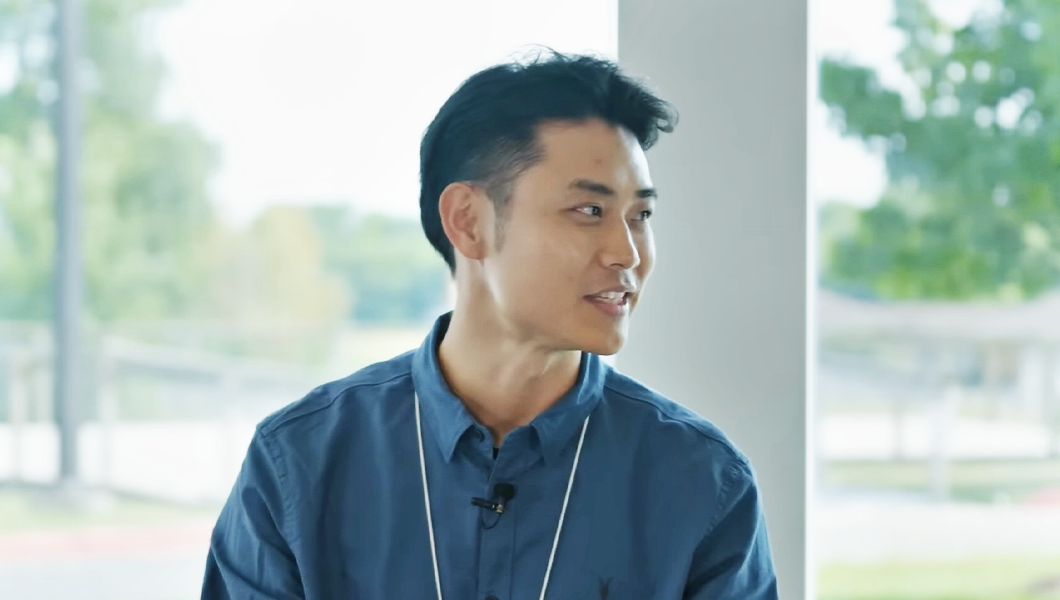
Q. Do I need to be fluent in English to work as an expat?
(Team leader Ki-jeong Jang, Pack QA Team)
A strong command of the English language would be beneficial for work and business communication, but you can do your job as long as you can communicate.
(Associate Hyun-jun Cha, North America Construction Team)
Having good English skills is necessary for living a comfortable life as an expatriate, but it is not a big deal if you can communicate in your work. Also, you will find it easier to connect with the locals if you speak English well.
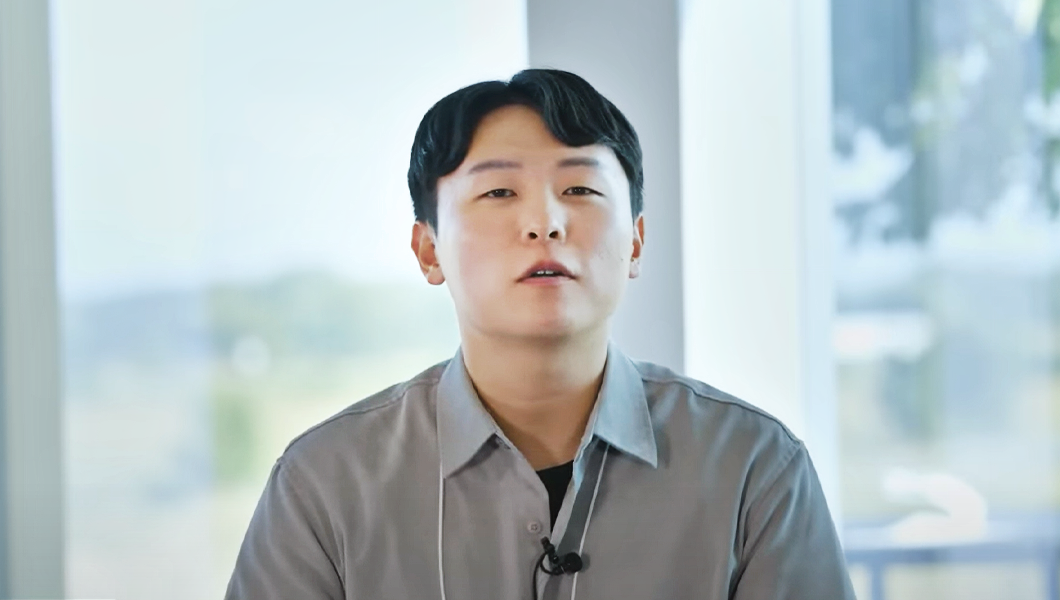
Q. Are there any benefits or assistance available to expatriates?
(Associate Hyun-jun Cha, North America Construction Team)
The company’s medical insurance in the United States was excellent. I received medical expense reimbursement and support for procedures at the dental and eye clinics because the coverage was high.
(Team leader Jae-cheol Yang, Manufacturing Capacity Building Team)
The company assisted us in renting a house for our four-person family. We also received assistance renting a car and paying for our children’s education.
(Team leader Ki-jeong Jang, Pack QA Team)
I’ve always wanted to live in another culture and work with the locals. So being able to gain such valuable experience was highly beneficial.
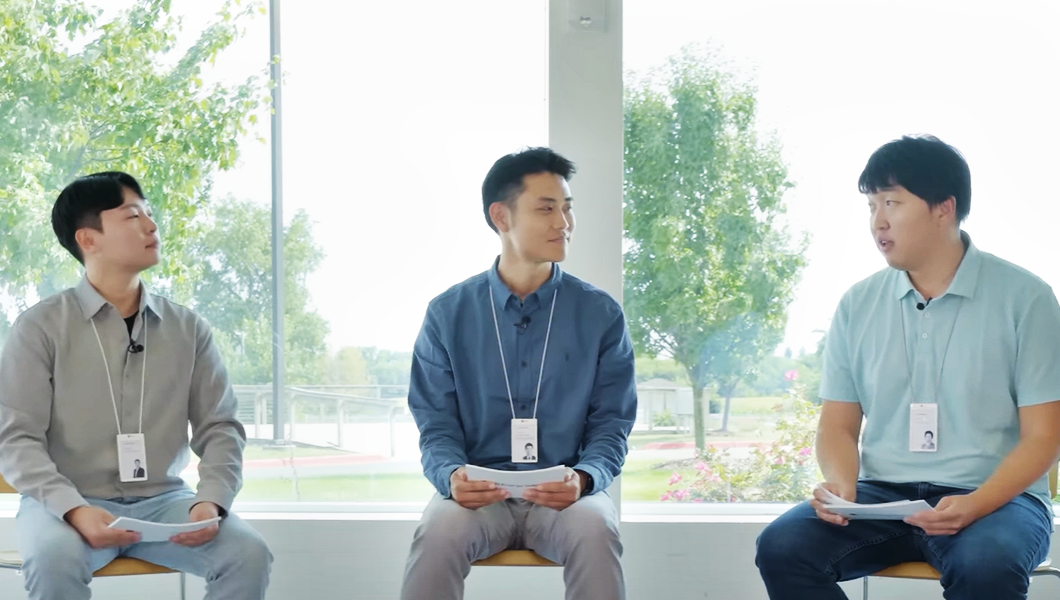
Q. Do you have frequent meetings with the Korean headquarters?
(Team leader Ki-jeong Jang, Pack QA Team)
We meet frequently. Due to the time difference, we have meetings at 7:00 a.m. or between 6:00 and 8:00 p.m. I accept that meetings are held early or late because an expatriate’s job is to serve as a manager, advisor, and conduit for local workers so they can communicate with Korea.
(Team leader Jae-cheol Yang, Manufacturing Capacity Building Team)
Even if the meeting is held early in the morning or late at night, I can adjust my working hours based on how much I worked after working hours, thanks to flexible work hours. As a result, I actively and voluntarily participated in the meeting, and I felt very satisfied.
(Associate Hyun-jun Cha, North America Construction Team)
We ran our campaign to reduce pointless meetings, encouraging us to use video conferencing only when necessary and to communicate via email in general. We’ve seen a reduction in meetings, and we’ve been able to make better use of our time.
Q. What is the most notable difference between working in Korea and working in the United States?
(Team leader Ki-jeong Jang, Pack QA Team)
Regarding working, there are cultural differences between Korea and the United States. In Korea, we tend to set tight due dates and schedules. In the United States, we have a lot of discussions and meetings to achieve goals. It can be frustrating, but it makes us more thorough.
(Team leader Jae-cheol Yang, Manufacturing Capacity Building Team)
The culture of discussion is well-developed here. We have a horizontal relationship with our bosses, almost like friends, and discussions are held horizontally so that good ideas can be proposed first, regardless of position. Ideas flow more freely in this environment, and there is much to learn. There is also a culture of rewarding ideas that are put into action. Employees who contribute ideas or execute them well are rewarded, even if the reward is small.
(The story of the Michigan expatriate continues in Part 2)


